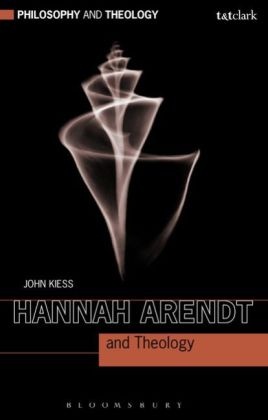Read more
Hannah Arendt is regarded as one of the most important political philosophers of the twentieth century. Famous for her account of the banality of evil, her wide-ranging work explored such themes as totalitarianism, the Holocaust, statelessness and human rights, revolutions and democratic movements, and the various challenges of modern technological society. Recent years have seen a growing appreciation of her complex relationship to theological sources, especially Augustine, the subject of her doctoral dissertation and a thinker with whom she contended throughout her life. This book explores how Arendt's critical and constructive engagements with theology inform her broader thought, as well as the lively debates her work is stirring in contemporary Christian theology on such topics as evil, tradition, love, political action, and the life of the mind. A unique interdisciplinary investigation bridging Arendt studies, political philosophy, and Christian theology, Hannah Arendt and Theology considers how the insights and provocations of this public intellectual can help set a constructive theological agenda for the twenty-first century.
List of contents
Table of Contents
Acknowledgments
Abbreviations
Introduction
Ch. 1 A Public Philosopher: The Life and Thought of Hannah Arendt
Ch. 2 The Problem of Evil Reconsidered
Ch. 3 Amor Mundi: Worldliness, Love, and Citizenship
Ch. 4 "That a Beginning Be Made": Natality, Action, and the Politics of Gratitude
Ch. 5 In the Region of the Spirit: Thinking Between Past and Future
Notes
Index
About the author
John Kiess is Associate Professor of Theology at Loyola University Maryland, USA.
Report
Hannah Arendt had a gift for reframing questions about how we should live in a way that forced us to rethink what we thought we knew. This makes her work essential, but it does not make it easy to understand. We are, therefore, very fortunate to have this extraordinary book by John Kiess. Writing with grace and clarity, Kiess draws on a wide range of other literature to help us understand the interrelation of Arendt's basic concepts and the importance of her work for theology. Stanley Hauerwas, Duke Divinity School, USA

